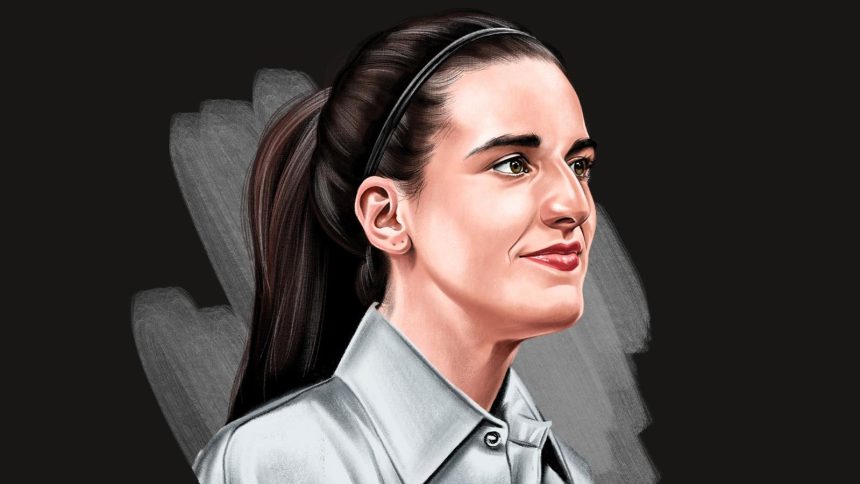Caitlin Clark’s meteoric rise in 2024 ignited a transformative year for women’s sports, marking a pivotal moment in its journey towards recognition, equity, and financial viability. Her remarkable performance on the court, culminating in a historic NCAA championship run and a record-breaking rookie season in the WNBA, captivated audiences and propelled women’s basketball into the national spotlight. Clark’s influence transcended mere sporting achievement; it became a catalyst for broader change, influencing media deals, viewership numbers, and investment in women’s sports across various disciplines. Her “pretty cool” shot not only shattered scoring records but also cracked open the door to a new era of opportunity and growth.
Clark’s electrifying presence on the court, combined with the emergence of other talented young players like Angel Reese, Cameron Brink, and Kamilla Cardoso, drew unprecedented attention to the WNBA. The league’s regular season viewership soared to a record 54 million, signifying a burgeoning fan base and increased marketability. This surge in popularity culminated in a landmark $2.2 billion media rights deal with Disney, Amazon Prime, and NBC, a testament to the growing financial clout of women’s professional basketball. Clark’s individual success became emblematic of the league’s overall progress, demonstrating its potential to attract both viewers and investors on a scale never before witnessed. Her inclusion on the Forbes list of the World’s 100 Most Powerful Women cemented her status as a game-changer, not just in sports, but in the broader cultural landscape.
The “Caitlin Clark effect” rippled beyond basketball, influencing other women’s sports and contributing to a more equitable landscape for female athletes. 2024 saw the first gender-parity Olympics, a historic milestone reflecting the increasing participation and recognition of women in international sport. The U.S. women’s soccer team enjoyed record viewership for its championship game, while Angel City FC achieved a record valuation for a women’s professional sports team. This collective momentum, fueled in part by Clark’s captivating performances, signaled a shift in public perception and investment, moving women’s sports closer to the mainstream and demanding recognition of its inherent value.
While Caitlin Clark provided the spark, the growth of women’s sports in 2024 was the culmination of years of effort by athletes, coaches, and advocates. Dawn Staley, a highly successful women’s basketball coach, recognized Clark’s role as a “unifier,” drawing new audiences to the sport and creating a sense of shared excitement. However, Staley also emphasized the long-standing momentum behind women’s sports, suggesting that Clark’s emergence occurred within a broader context of progress and increasing public interest. This confluence of individual brilliance and collective effort created a tipping point, propelling women’s sports into a new realm of visibility and opportunity.
Despite the significant strides made in 2024, the journey towards true equity in women’s sports remains a long one. While revenue projections for women’s sports are promising, the overall financial landscape remains vastly different from that of men’s sports. The stark disparity in starting salaries between the WNBA and NBA underscores the ongoing challenges. Experts emphasize the crucial role of sponsorships and media rights in driving revenue growth for women’s sports, highlighting the need for continued investment and equitable distribution of resources. The “new normal” in women’s sports, while promising, still requires significant structural change and a sustained commitment to closing the gender gap in compensation and investment.
Caitlin Clark’s phenomenal year served as a powerful catalyst for change, but the sustained growth of women’s sports requires collective action and long-term commitment. Investments from team owners like Michele Kang, the rising profiles of Olympic athletes like Simone Biles and Katie Ledecky, and the leadership of coaches like Cheryl Reeve and Emma Hayes are all contributing to a more vibrant and sustainable ecosystem. While Clark’s on-court brilliance provided the initial spark, the future of women’s sports depends on a multifaceted approach, encompassing not only individual talent but also systemic change in media coverage, sponsorship deals, and overall investment. The journey towards true equity is ongoing, but 2024, ignited by Caitlin Clark’s “pretty cool” shot, marked a decisive turning point, illuminating the path towards a future where women athletes receive the recognition, support, and compensation they deserve.



